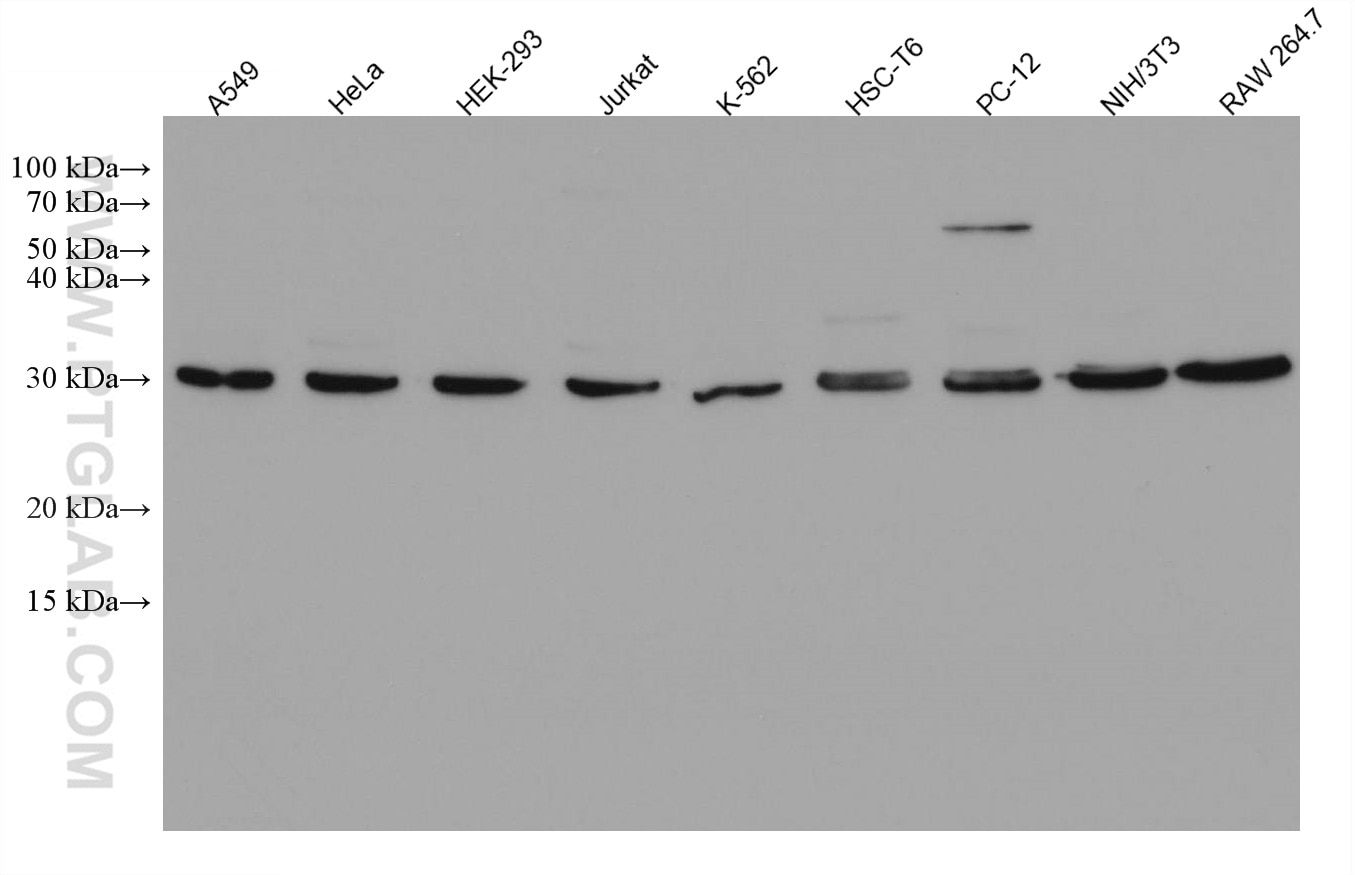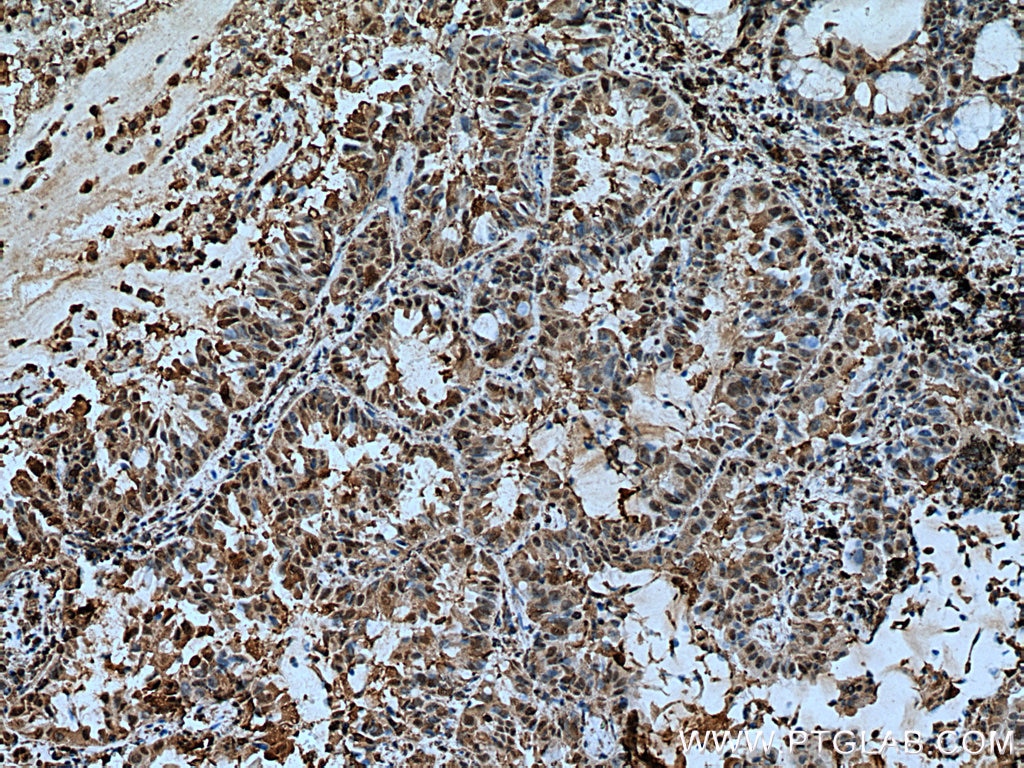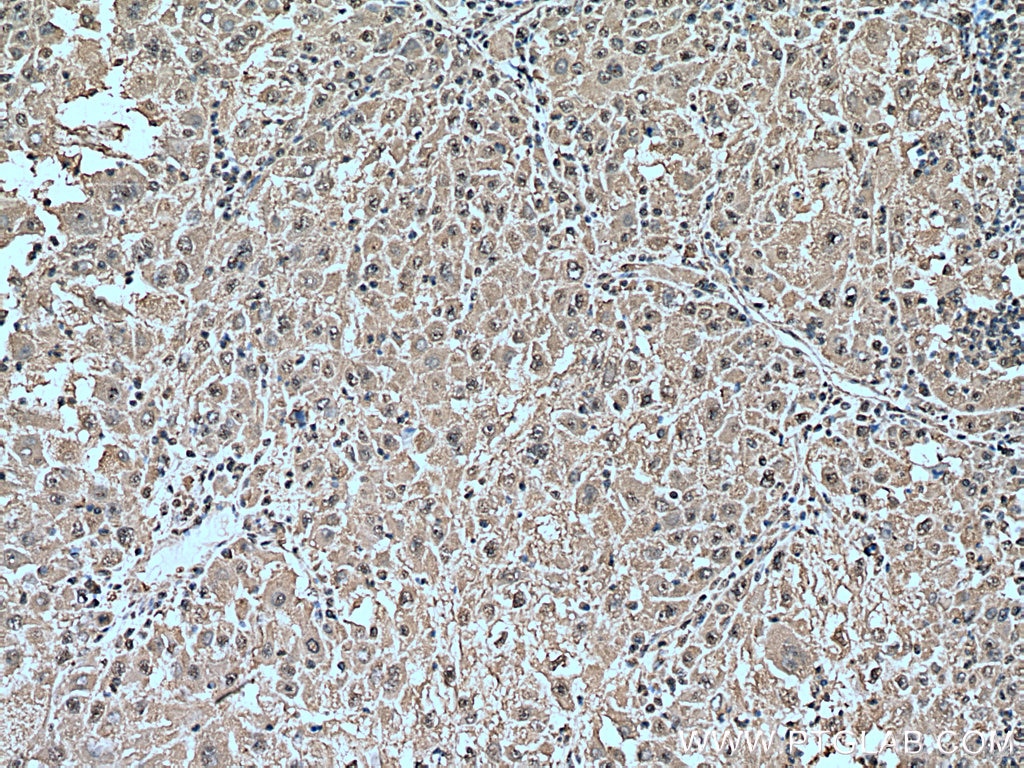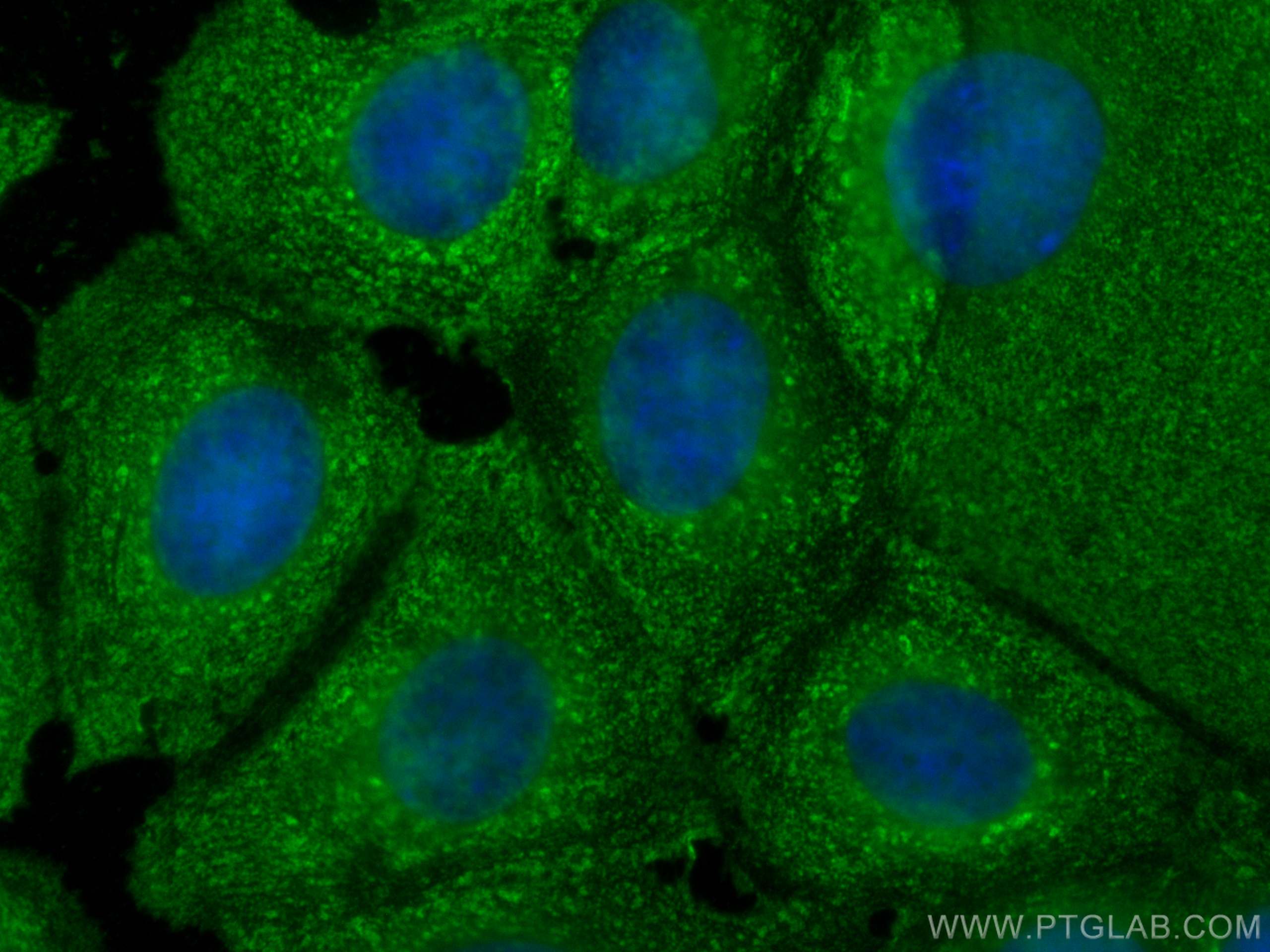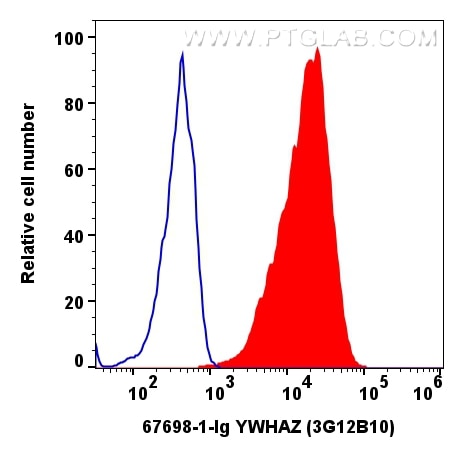YWHAZ Monoklonaler Antikörper
YWHAZ Monoklonal Antikörper für WB, IHC, IF/ICC, Indirect ELISA
Wirt / Isotyp
Maus / IgM
Getestete Reaktivität
human, Maus, Ratte
Anwendung
WB, IHC, IF/ICC, Indirect ELISA
Konjugation
Unkonjugiert
CloneNo.
3G12B10
Kat-Nr. : 67698-1-PBS
Synonyme
Geprüfte Anwendungen
Produktinformation
67698-1-PBS bindet in WB, IHC, IF/ICC, Indirect ELISA YWHAZ und zeigt Reaktivität mit human, Maus, Ratten
| Getestete Reaktivität | human, Maus, Ratte |
| Wirt / Isotyp | Maus / IgM |
| Klonalität | Monoklonal |
| Typ | Antikörper |
| Immunogen | YWHAZ fusion protein Ag6667 |
| Vollständiger Name | tyrosine 3-monooxygenase/tryptophan 5-monooxygenase activation protein, zeta polypeptide |
| Berechnetes Molekulargewicht | 28 kDa |
| Beobachtetes Molekulargewicht | 28-30 kDa |
| GenBank-Zugangsnummer | BC003623 |
| Gene symbol | YWHAZ |
| Gene ID (NCBI) | 7534 |
| Konjugation | Unkonjugiert |
| Form | Liquid |
| Reinigungsmethode | Caprylsäure/Ammoniumsulfat-Präzipitation |
| Lagerungspuffer | PBS only |
| Lagerungsbedingungen | Store at -80°C. 20ul Größen enthalten 0,1% BSA. |
Hintergrundinformationen
YWHAZ (also known as 14-3-3 zeta) is a member of 14-3-3 proteins which were the first phosphoserine/phosphothreonine-binding proteins to be discovered. 14-3-3 family members interact with a wide spectrum of proteins and possess diverse functions. Mammals express seven distinct 14-3-3 isoforms (gamma, epsilon, beta, zeta, sigma, theta, tau) that form multiple homo- and hetero- dimmers. 14-3-3 proteins display the highest expression levels in the brain, and have been implicated in several neurodegenerative diseases, including Alzheimer's disease and amyotrophic lateral sclerosis.
